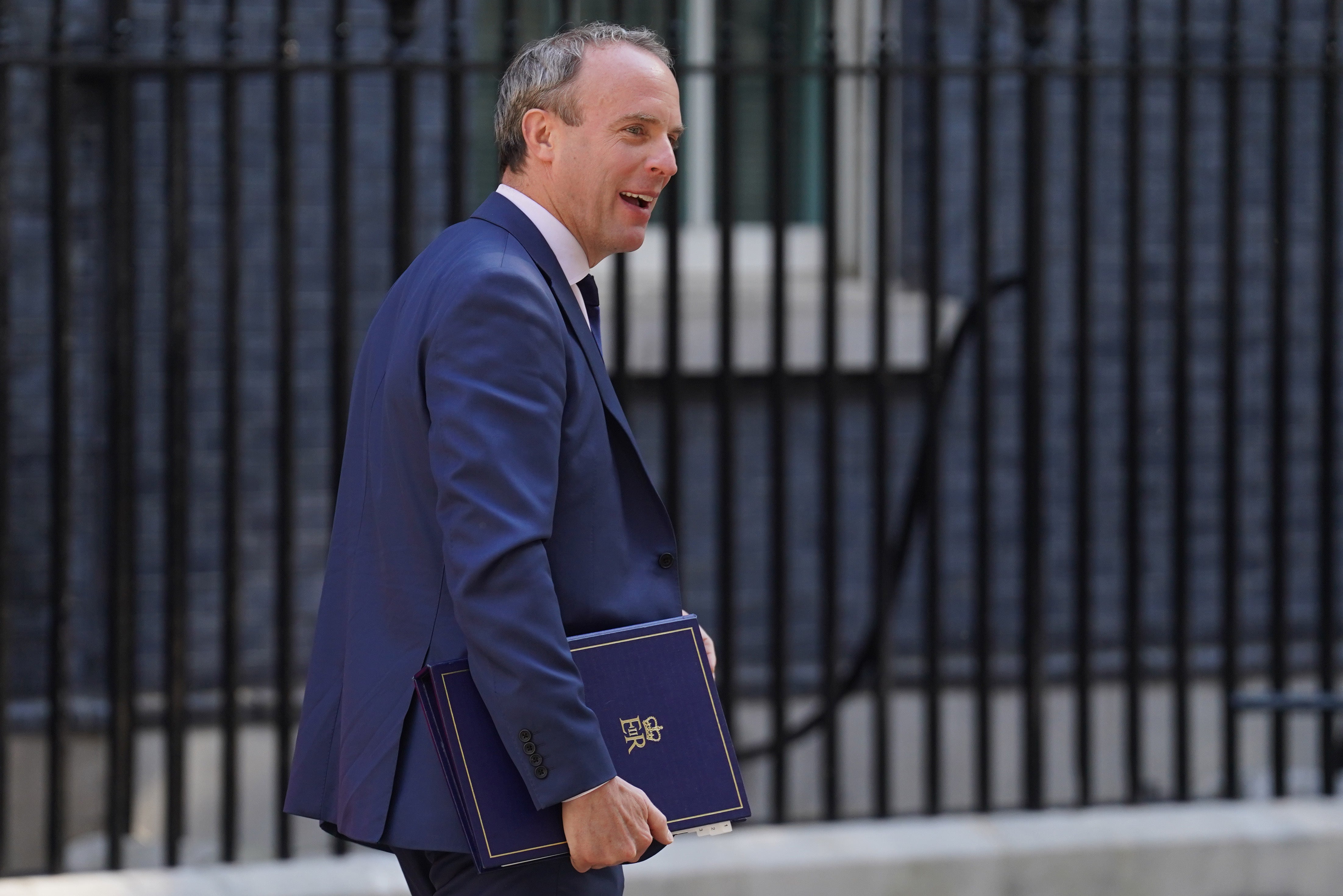How Raab is considering a Bill of Rights to force through Rwanda flights
The European Convention on Human Rights was drawn up by the Council of Europe, an organisation which Winston Churchill was instrumental in founding.

Your support helps us to tell the story
From reproductive rights to climate change to Big Tech, The Independent is on the ground when the story is developing. Whether it's investigating the financials of Elon Musk's pro-Trump PAC or producing our latest documentary, 'The A Word', which shines a light on the American women fighting for reproductive rights, we know how important it is to parse out the facts from the messaging.
At such a critical moment in US history, we need reporters on the ground. Your donation allows us to keep sending journalists to speak to both sides of the story.
The Independent is trusted by Americans across the entire political spectrum. And unlike many other quality news outlets, we choose not to lock Americans out of our reporting and analysis with paywalls. We believe quality journalism should be available to everyone, paid for by those who can afford it.
Your support makes all the difference.Ministers knew from the start that their policy of sending asylum seekers to Rwanda on a one-way ticket was bound to attract legal challenges.
Now the Government is under pressure from Conservatives to find a way of making it work or risk charges of incompetence after the first flight was grounded by court action.
With some of the legal wrangling involving the Tory bugbear of the European Court of Human Rights (ECtHR), here is a look at how they plan to force the policy through using a British Bill of Rights.
– Why did the flight not take off?
The first forced removals of asylum seekers to Kigali was scheduled to take off on Tuesday evening, with ministers initially expecting around 130 passengers.
But legal challenges whittled down the manifest until on the morning ahead of take-off only around seven migrants or fewer were expected to be on board.
Then the ECtHR granted an interim injunction barring the removal of an Iraqi asylum seeker until a decision on the legality of the Government’s policy is made in UK courts.
The Strasbourg-based court removed two others from the plane, while the Supreme Court granted injunctions preventing the immediate removal of three more.
– How might they get around it?
Deputy Prime Minister Dominic Raab has a plan.
Some Tory MPs want Britain to pull out of the European Convention on Human Rights (ECHR) which the court rules on.
But it appears the Government is not willing to take such a drastic step, which could undermine the Good Friday Agreement.
Instead Mr Raab, who is also Justice Secretary, is eying the prospect of ignoring injunctions from the European court, which he argues are wrong.
He suggested this would not be possible under the Human Rights Act, which enshrines the ECHR into UK law.
But Mr Raab argued it would be under the Bill of Rights that the Government wants to introduce to replace the act.
– What is Britain’s relationship with the convention?
For years now there has been some strong opposition to the convention within the Conservative Party.
Theresa May, then home secretary in 2011, made the fiercely contested claim that an “illegal immigrant” could not be deported because of his “pet cat”.
However, the ECHR was drawn up by the Council of Europe, an organisation which Winston Churchill was instrumental in founding after the Second World war to secure civil and political rights.